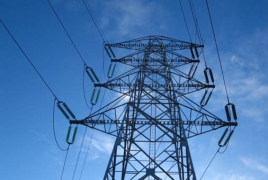
The Public Services Regulatory Commission of Armenia has decided during its June 18 session to impose a 10 million dram fine on the Electric Networks of Armenia (ENA) for regulatory violations.
ENA did not dispute the infractions, leading the commission to enforce the penalty, which must be paid to the state budget within one month.
The company is also required to eliminate similar violations across its entire service area by December 31, 2025. In addition, it must compensate consumers where applicable and submit a compliance report within one month.
A short-term monitoring study was conducted between February 3–14, 2025, across three ENA branches. The inspection revealed multiple deficiencies concerning the technical condition of electricity meters and their casing boxes, accuracy of metering, and infringement of consumer rights.
As of January 22, 2025, all induction-type (mechanical) three-phase commercial meters were supposed to be replaced with electronic meters capable of automatically logging data, including reactive energy usage, according to Rule 241 of the Energy Distribution and Consumption regulations.
Meters are also required to record voltage levels and power factors (cos) at 30-minute intervals (Rule 247.1), and energy consumption must be registered automatically based on meter displays—manual readings by inspectors are not permitted (Rule 75 of the Energy Measurement and Accounting rules).
Prime Minister Nikol Pashinyan noted that a bill on ENA’s nationalization is currently under discussion in parliament. He mentioned that a month ago, cabinet members were instructed to assess and compensate damages caused by ENA to residents. The deadline for this task is June 21.
“I directly link this wave of activity to that instruction. Government members started to work, and ENA received a clear message: calculate the damage done to people, the state, and private organizations. I visited Lori—wherever I went, power was either off or unreliable. This is unacceptable. The church, in this case, is merely a smokescreen for ENA’s soon-to-be former owners. Their mismanagement nearly triggered an energy crisis,” he stated.

